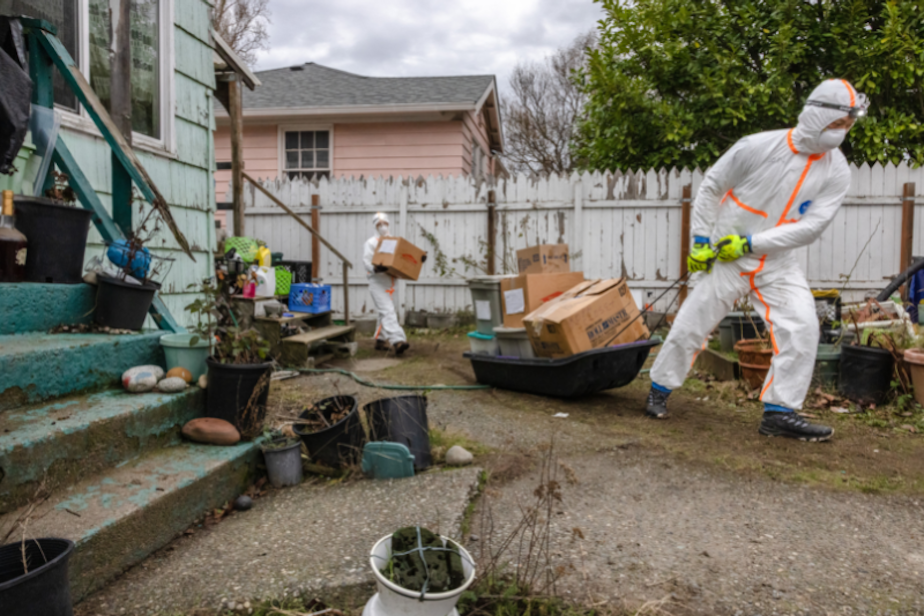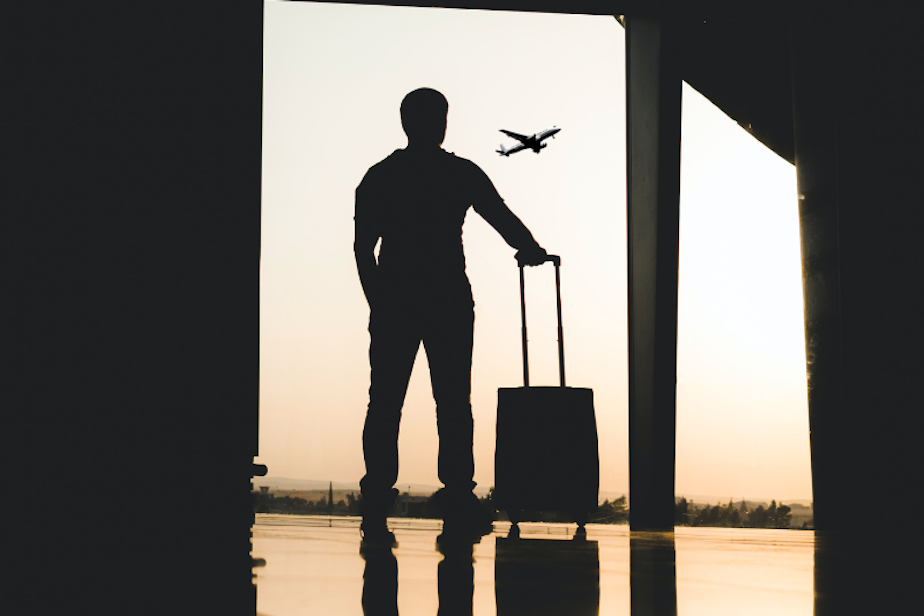Where is Seattle's 'right size' housing 'in the right place, and at the right price': Today So Far

The Seattle area has heard similar messages for years: the cost of living is expensive, there isn't enough housing, and we need a lot of new types of more-dense housing. But exactly what types of housing should we be talking about? Are there any dense housing options for families? Are they actually affordable? Those are questions a couple new housing assessments attempt to answer.
This post originally appeared in KUOW's Today So Far newsletter for January 10, 2023.
When I started dating Nina, I knew that there would be a long-term plan where her mother would come to live with us. There are a few reasons behind this from cultural to personal, but in the end, it would be a multigenerational household. So when we eloped in 2020, such plans began to take shape. Fast forward to today, and my consumption of curry dishes, papaya salads, and Tom Kha Gai has gone up considerably.
For this plan to work, we moved out of Seattle. Seattle is great for studios and one bedroom apartments, especially for professionals and tech workers hauling hefty paychecks. But it was difficult finding housing apt for our situation. I couldn't find a way to make it pencil out. Even if you could race to be first in line for a house or even a two-bedroom apartment, the affordability factor kicked in and let's just say that journalists don't make Amazon money. Plus, I'm not able to produce and sell enough plasma to make it financially feasible.
(Just because I know that person is out there, ready to write an email at a moment's notice: I'm kidding. I'm not actually trying to sell plasma to make rent. But I hope the point is made. Also, donating blood and plasma is a good thing that helps a lot of people, so you should consider it.)
RELATED: Ripple Effect — Seattle housing problems are pushing people further out
The Tacoma area is where we found refuge. Nina and I have added a commute to our work life, and we have further learned the limits of our region's mass transit system. Friends and family are further away. And it's a much farther trip to access any pinball machines (that's more of a me problem). I'm not oversharing all this as a tale of woe, rather as an anecdotal example. There are many other anecdotal examples out there, from various people pushed out of the city for various reasons. It's been happening for years. Our region has a housing shortage, and beyond that, the housing we often hear about doesn't cover the full spectrum of need. I've more often heard arguments for smaller Seattle apartments.
That it speaks to a point which Challenge Seattle made in its recent assessment of our region's housing needs. It's a point that stood out to me.
"Housing supply—at the right size, in the right place, and at the right price—is the solution to address today’s affordability crisis and meet tomorrow’s housing needs."
Challenge Seattle argues that, aside from certain zoning reforms, the region needs to start producing a lot more two- and three-bedroom units for families, instead of the closets ... er, I mean apartments that are available around town.
Yesterday, TSF covered what real estate and economic experts are noticing, and further predicting, about the Seattle-area housing market in 2023. But others, like Challenge Seattle, are considering the region's housing needs by looking a little further ahead. What housing will help most, beyond single-family homes and studio apartments?
Challenge Seattle is led by former Washington Governor Christine Gregoire who pulled together some of the region's top CEOs to workshop the issue. Their recent report points to zoning codes as a big factor, with much of the blame, again, being on an overreliance on single-family zoning. Challenge Seattle promotes allowing more duplexes, triplexes, and townhomes in our communities. Instead of one house, three or more units can serve a lot more people.
As it states in its report: "Washington has not been producing housing types of the right size. For example, from 2010-2021 studio and 1-bedroom apartments accounted for ~60% of new housing units, not meeting the needs of Washington’s 3+ or 4+ person households."
Challenge Seattle's report comes at the same time as an assessment from the nonprofit Urban Institute, which does research on economic and social policy. It too points to out-of-date zoning codes, which sometimes don't align with our mass transit plans. There is a push to put more housing near mass transit stations. That means more dense housing. But a lot of mass transit gets built through communities with more single-family homes. This mismatch is one thing it argues should be addressed and that means tackling the region's zoning codes.
Which brings me to the point I've been harping on for a couple years now. We've been told a similar message over and over again: build more dense housing. And I'll say it again: Do it — just don't make it ugly. Take the recommendation for more townhouses. When I hear the word "townhouse," my mind immediately goes to images of brownstones fit for a rom-com set in New York. But I've seen townhouses around Seattle, and they don't look like any aesthetic a rom-com director would want to shoot in front of. They're neither romantic or even comedic.
Check out the full story on Challenge Seattle and the Urban Institute, and what they have to say about our housing, here.
I feel I should note that, personally, I do love a nice single-family home. It's the solution we were able to feasibly find outside of Seattle. But to only invest in single-family homes, well, you see the problems we have now. It leads to folks moving out of town, and the folks who stay are likely to find what I call "speakeasy housing." But investing in mostly single-worker housing can also have a negative effect. It's almost like there is something in the middle that's missing.
AS SEEN ON KUOW

Volunteer military veterans with Team Rubicon help clean up debris in Seattle's South park neighborhood following massive flooding in December 2022. (Courtesy of Team Rubicon)
DID YOU KNOW?
What does getting "a good night's sleep" mean? I've heard all my life that you need to get 8 hours. But it basically comes down to sleeping enough to function well during the day, according to sleep expert Michael V. Vitiello, who recently spoke with Seattle Now. Vitiello says that for some people, 8 hours of sleep is normal, but 7 hours might be just as normal for another person, even 6 hours for some people. And some folks do well with 9 hours. It depends on the person and a lot of factors. Outside that range, there could be increased risks for illnesses.
One of the best things you can do for good sleep, a "cardinal rule" according to Vitiello, is maintaining regular sleep times. In other words, just because it's dark during these winter mornings, don't sleep in. And try to get to bed at the same time each night. In other words, put down TikTok and just go to bed.
ALSO ON OUR MINDS

Coronavirus FAQ: How do I avoid catching Covid while flying in 2023?
It's been nearly three years since the Covid-19 pandemic was declared, but if you head to some airports right now you might think you've returned to the early days of the outbreak. A surge of cases in China has prompted the U.S. to require a negative Covid test for travelers flying in from the Peoples' Republic of China, Hong Kong and Macau. That went into effect on Jan. 5. The European Union recommends the same measures for its member states.

